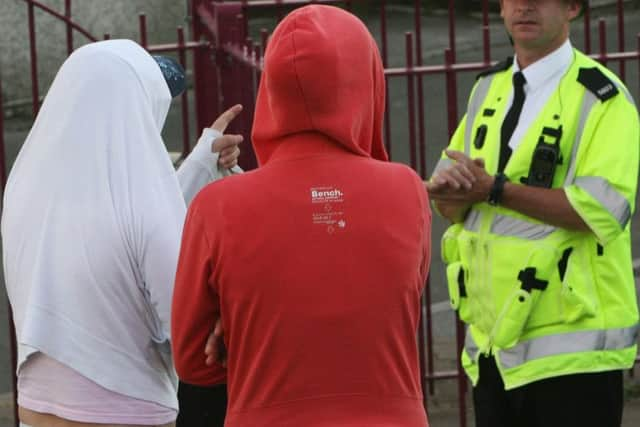More use of electronic criminal tagging backed by Scottish MSPs
The Scottish Parliament’s justice committee has given its support to measures in the Scottish Government’s Management of Offenders Bill including reducing the period during which a person must disclose prior convictions.
The legislation hopes to reduce re-offending by offering alternatives to imprisonment and encouraging rehabilitation.
Advertisement
Hide AdAdvertisement
Hide AdBut there are concerns over the safety of tagging following the murder of Craig McClelland, 31, in 2017 by James Wright. Wright had been “unlawfully at large” for five months after breaching the terms of a Home Detention Curfew (HDC).


The committee of MSPs has given its backing to tags which can monitor individuals more closely than before using GPS and also so-called sobriety tags which respond to the presence of alcohol or drugs in a person’s sweat.
However, the committee said robust risk-assessment, proactive monitoring and effective enforcement measures against breaches must all be in place before the new electronic monitoring regime is rolled out.
Convener Margaret Mitchell said: “This legislation is intended to cut reoffending rates in Scotland and help people who have committed offences reintegrate into the community. These are worthy objectives which the committee supports.
“The committee is backing the overall aims of the bill, and fully supports changes to the rules around disclosing prior convictions.
“This is an important step towards helping people with convictions find gainful employment and be rehabilitated into society.
“However, the various measures in the bill must be properly resourced, including monitoring and enforcement provisions. And whilst the committee agrees in principle to greater use of electronic monitoring, it looks forward to working with the Scottish Government to strengthen the bill.
“This will involve ensuring improvements are made before any changes come into force, particularly around dealing swiftly and effectively with tagging breaches, and minimising risk.”
Advertisement
Hide AdAdvertisement
Hide AdLast year, the number of prisoners being allowed to serve part of their sentence using an electronic tag fell by around 75 per cent when new restrictions were introduced following Mr McClelland’s murder.
A Scottish Government spokesman said: “We welcome the committee’s support for the principles of the bill, which is a key part of our wider work to reform the justice system and protect public safety.
“Scotland’s reoffending rate is at a 19-year low and the continued expansion of electronic monitoring (EM) increases the options available to manage and monitor people serving their sentence in the community. The budget for EM has been increased to £6 million in anticipation of these changes.”